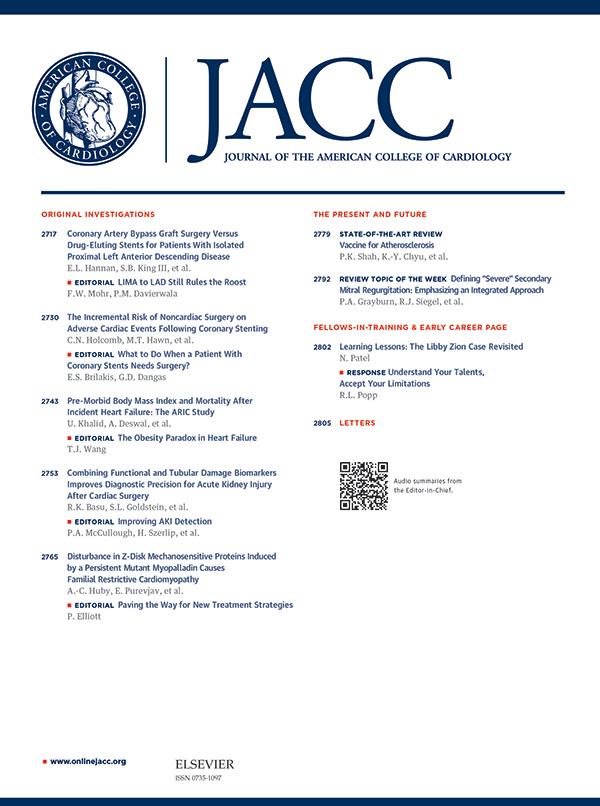The Coming AI Revolution in Clinical Trials
IF 21.7
1区 医学
Q1 CARDIAC & CARDIOVASCULAR SYSTEMS
引用次数: 0
Abstract
Section snippets
Digital Strategy and Data Infrastructure
Current systems for data storage and analysis are siloed, limiting the potential for AI to function efficiently across data networks. Without interoperable data systems, even the most advanced AI tools will struggle to deliver real impact. We need a unified data strategy—how we manage, integrate, and safeguard data across platforms—focused on a patient-centered data ecosystem that facilitates information flow across EHRs, health system applications, personal records, and clinical trial dataBusiness Model Innovation
Current clinical trial business models are designed around trial sites, not participants. They involve processes that are labor-intensive, duplicative, and burdened by high fixed costs for recruitment, site management, and data collection. Data are often collected redundantly, despite also being obtained for routine clinical care, with gaps in collection due to episodic follow-up instead of continuous monitoring. AI has the potential to streamline certain processes, shorten timelines, and lowerRegulatory Modernization and AI Evaluation
Regulatory bodies are crucial in ensuring the safety and efficacy of AI-augmented clinical trials, yet the current regulatory framework was not designed to accommodate the rapid advancements in AI technology or the unique risks of AI use in RCTs. Rather than relying on traditional linear approval pathways, regulators should embrace iterative approaches that incorporate regular feedback. Participants in RCTs that use AI tools for operations are a potentially vulnerable population in which thereFunding Support and Author Disclosures
Dr Jain has received consulting fees from Bristol Myers Squibb, ARTIS Ventures, and Broadview Ventures outside of the submitted work. Dr Sarraju holds stock in Medeloop. Dr Ashley is a founder of Personalis, DeepCell, and Svexa; is a founding advisor of Nuevocor; is a nonexecutive director at AstraZeneca; and has served as an advisor for SequenceBio, Novartis, Medical Excellence Capital, Foresite Capital, and Third Rock Ventures. Dr Harrington has served on the Board of Directors for the求助全文
约1分钟内获得全文
求助全文
来源期刊
CiteScore
42.70
自引率
3.30%
发文量
5097
审稿时长
2-4 weeks
期刊介绍:
The Journal of the American College of Cardiology (JACC) publishes peer-reviewed articles highlighting all aspects of cardiovascular disease, including original clinical studies, experimental investigations with clear clinical relevance, state-of-the-art papers and viewpoints.
Content Profile:
-Original Investigations
-JACC State-of-the-Art Reviews
-JACC Review Topics of the Week
-Guidelines & Clinical Documents
-JACC Guideline Comparisons
-JACC Scientific Expert Panels
-Cardiovascular Medicine & Society
-Editorial Comments (accompanying every Original Investigation)
-Research Letters
-Fellows-in-Training/Early Career Professional Pages
-Editor’s Pages from the Editor-in-Chief or other invited thought leaders

 求助内容:
求助内容: 应助结果提醒方式:
应助结果提醒方式:


